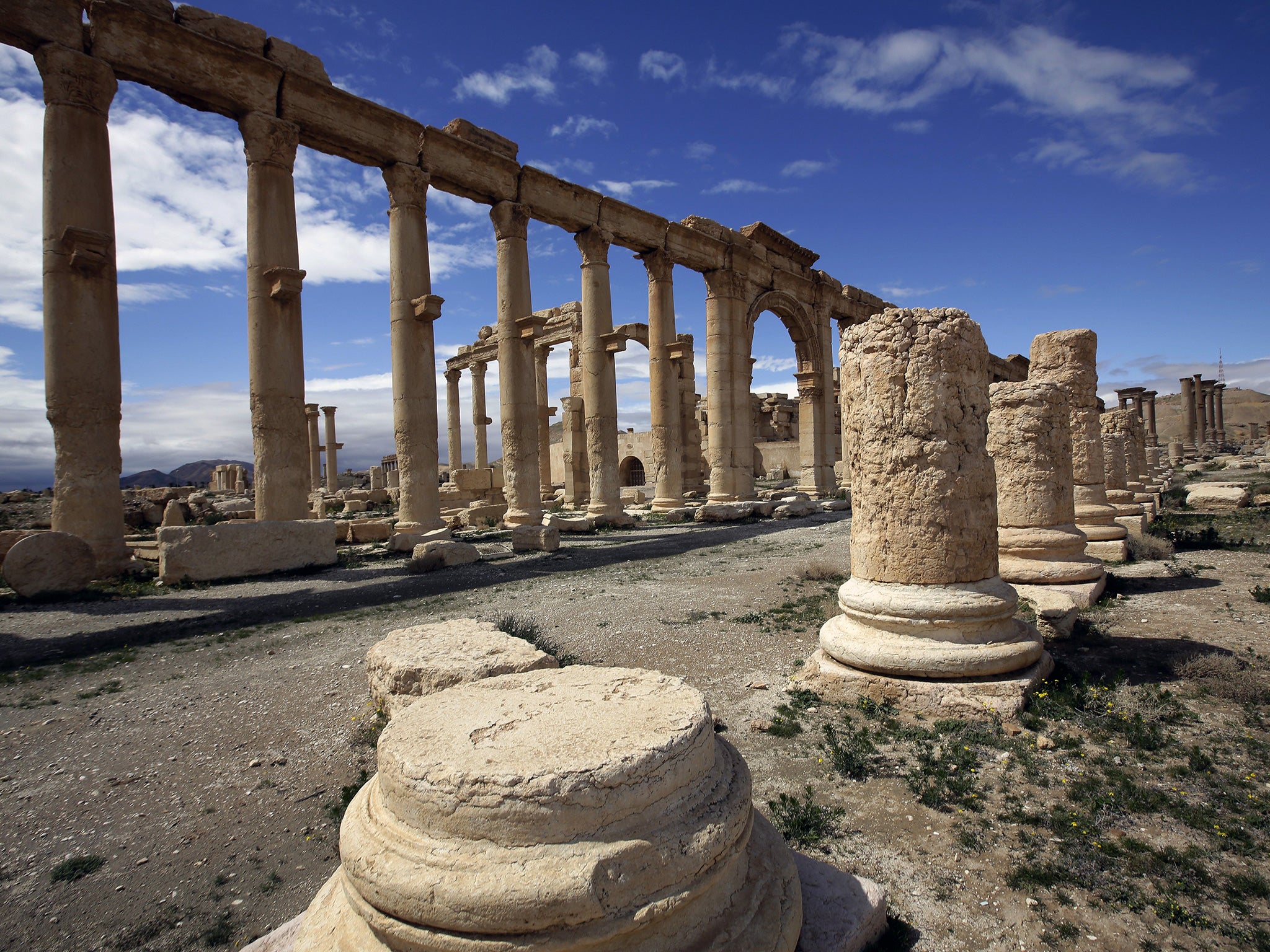Isis in Palmyra: Extremist fighters 'destroy ancient city temple'

Isis militants have destroyed an ancient temple at the ruins of Palmyra in Syria, activists said last night.
Activists claimed the Baalshamin Temple was blown up yesterday by militants using explosives.
The blast was so powerful it also damaged some of the columns around it.
Palmyra is a 2,000-year-old Roman city, one of the Middle East’s most significant archaeological areas and a UNESCO World Heritage site.
Turkish-based activist Osama al-Khatib, originally from Palmyra, claimed the temple was destroyed yesterday.
However, the Syrian Observatory for Human Rights based in Britain said the temple, dating from the first century and dedicated to the Phoenician god of storms and fertilising rains, was blown up a month ago.
Both sources agreed a large amount of explosives had been used to raze it to the ground.
It is not yet known if the nearby Temple of Bel was also damaged in the blast.
Head of UNESCO Irina Bokova warned on Friday that Islamic state extremists in Syria and Iraq were involved in “the most brutal, systematic” destruction of ancient sites since World War II.
The Islamic extremists claim ancient relics promote idolatry and claim their destruction is part of a purge of paganism.
But it is believed they are also selling off looted antiquities to fund their campaign.
There was no confirmation last night on social media from Isis supporters the temple had been destroyed.
Syria's head of antiquities Maamoun Abdul Karim also claimed the temple was destroyed by Isis on Sunday.
He said: "We have said repeatedly the next phase would be one of terrorising people and when they have time they will begin destroying temples.
"I am seeing Palmyra being destroyed in front of my eyes."
The Baalshamin Temple is just 500 metres from Palmyra’s famous amphitheatre, where militants killed 20 Syrian soldiers after the town was captured in May, according to al-Khatib.
News of the temple’s destructions comes just days after 81-year-old antiquities scholar Khaled al-Asaad was reported to have been beheaded by Isis.
He had devoted his life to understanding Palmyra and even named his daughter Zenobia, after the queen who ruled the city 1,700 years ago.
Join our commenting forum
Join thought-provoking conversations, follow other Independent readers and see their replies
Comments
Bookmark popover
Removed from bookmarks